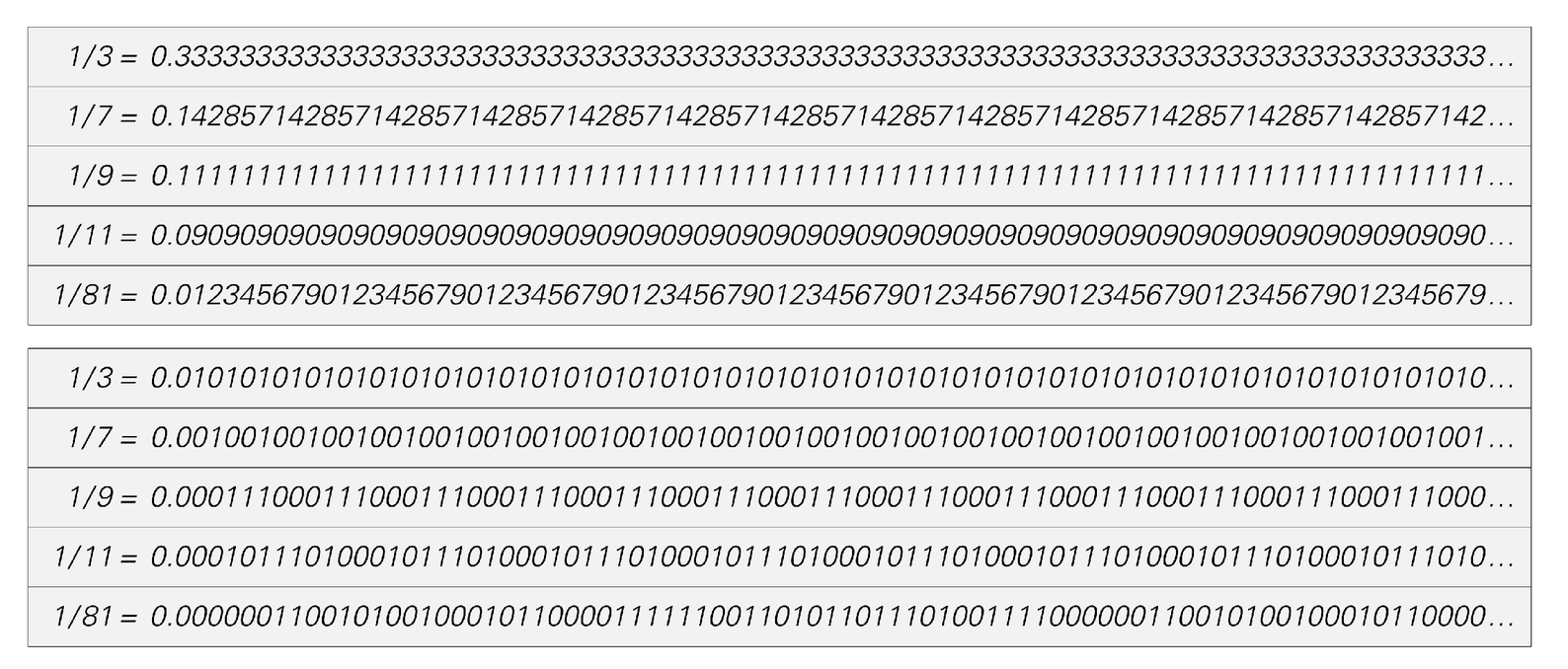In no case are there any obvious regularities. Indeed, in all the more than two hundred billion digits of π that have so far been computed, no significant regularity of any kind has ever been found. Despite the simplicity of its definition, the digit sequence of π seems for practical purposes completely random.
But what about other numbers? Is π a special case, or are there other familiar mathematical constants that have complicated digit sequences? There are some numbers whose digit sequences effectively have limited length. Thus, for example, the digit sequence of 3/8 in base 10 is 0.375. (Strictly, the digit sequence is 0.3750000000..., but the 0's do not affect the value of the number, so are normally suppressed.)
It is however easy to find numbers whose digit sequences do not terminate. Thus, for example, the exact value of 1/3 in base 10 is 0.3333333333333..., where the 3's repeat forever. And similarly, 1/7 is 0.142857142857142857142857142857..., where now the block of digits 142857 repeats forever. The table below gives the digit sequences for several rational numbers obtained by dividing pairs of whole numbers. In all cases what we see is that the digit sequences of such numbers have a simple repetitive form. And in fact, it turns out that absolutely all rational numbers have digit sequences that eventually repeat.
We can get some understanding of why this is so by looking at the details of how processes for performing division work. The pictures

Digit sequences for various rational numbers, given in base 10 (above) and base 2 (below). For a number of the form p/q, the digit sequence always repeats with a period of at most q–1 steps.



